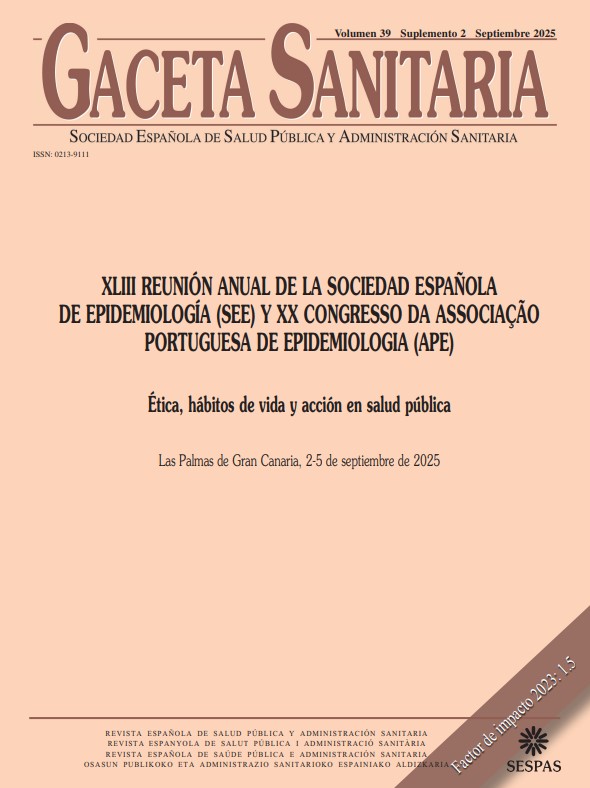260 - DOES SOCIAL SUPPORT BUFFER SOCIO-ECONOMIC INEQUALITIES IN MENTAL DISTRESS AMONG CANCER SURVIVORS?
ibs.GRANADA; Escuela Andaluza de Salud Pública; CIBERESP; HUVN; CNE-ISCIII; Bispebjerg and Frederiksberg Hospital.
Background/Objectives: A cancer diagnosis is a significant life stressor that could exert negative impact on mental health for years after treatment. Numerous studies have shown that cancer survivors with lower socio-economic status (SES) are at higher risk of reporting mental distress. Social support is widely recognized as a protective factor that promotes psychological resilience in this population. In this study, we tested the stress-buffering hypothesis: to what extent could social support mitigate the negative effects of low SES on mental distress among cancer survivors.
Methods: Participants were 1,153 adults (60.4% women) with a history of cancer (41.1% diagnosed within the previous year), who participated in the National Health Survey of Spain (2017). SES was categorized as lower vs. higher based on the Spanish Society of Epidemiology’s social class classification. Social support was measured with the Duke-UNC Functional Social Support Questionnaire, and mental distress was assessed with the GHQ-12 (General Health Questionnaire-12). To investigate the possible interaction between SES and social support, we conducted multiple linear regression analyses, adjusting for age, sex, time since cancer diagnosis, history of depression or anxiety, and comorbidities.
Results: Mental distress was significantly higher among female survivors, those recently diagnosed, and individuals with more comorbidities. Mental distress was also overall higher among survivors with lower SES, however, this effect depended on their level of perceived social support, (F(2,1133) = 3.6, p = 0.02). In particular, under moderate levels of social support, individuals with lower SES experienced more mental distress than those with higher SES. However, this SES-related difference disappeared among participants with high levels of social support. Cancer survivors with low social support experienced the highest level of mental distress, regardless of SES. The buffering effect of social support was weaker among women and younger survivors (#2 65 years old).
Conclusions/Recommendations: Social support partially buffered socio-economic inequalities in mental distress among cancer survivors, though less effectively so among women and younger individuals. These findings suggest that intersecting psychosocial, demographic and structural factors (e.g., gender-specific stressors, social roles, and age-related economic vulnerabilities...) may influence the mental health outcomes of cancer survivors.
Funding: Subprogram VICA CIBERESP.















